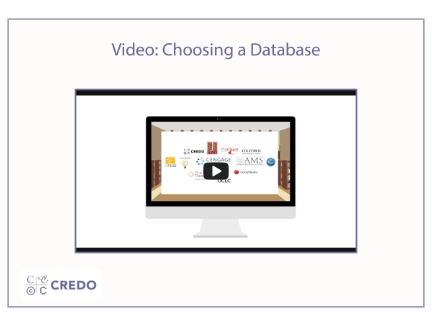Databases are simply collections of information. The type of database differs according to the type of works it contains - whether those works are copyrighted and/or freely accessible.
Types of Databases | Examples | Characteristics |
Open Web Search Engines | Bing Yahoo | Free to use (no paywall) Access is paid for by advertisements: the company that produces the search engine collects the user's search history data and sells it to companies who then target the user with specific advertisements Search results are governed by algorithms, which can be configured to promote specific returns such as advertisements, the most popular websites, etc. Apart from open access repositories, copyrighted materials are generally not accessible via the open web Search results must be verified for quality and trustworthiness |
Generative AI Large Language Models (LLMs) | ChatGPT Gemini (Google) Copilot (Microsoft) Perplexity | Basic access appears to be free to use (no paywall) Involves algorithms that can generate text, images, videos, and music that resemble human-like creativity Able to create new content or data (based on learned patterns) that is similar but not identical to existing data Can generate factually inaccurate or illogical answers (hallucinations) Risk of plagiarism if the model reproduces sentences or paragraphs from its training data Copyrighted information may be included, with or without appropriate permissions May not include current information Potential to amplify societal biases Data privacy and security issues |
Commercial Databases | Databases provided by academic libraries | Subscription required (paywall) Fee-based: Access is paid for by student tuition/fees and/or state taxes Provides access to scholarly materials and full-text copyrighted material via sophisticated search systems and user-friendly interfaces The companies that produce databases pay licensing fees to copyright holders (so their material can be legally included), database publishers, and database creators |
Open Access (OA) Repositories | Institutional repositories provided by organizations | Free to use (no paywall) Access is paid for by organizations such as universities or libraries that wish to make certain materials available to the public Contains some copyrighted material that copyright holders have made openly accessible by waiving restrictions OA works are often discoverable via Google Scholar or Directory of Open Access Journals (DOAJ) |
For more information, read Online Searching: A Guide to Finding Quality Information Efficiently and Effectively by Karen Markey and Cheryl Knott and visit the PASCAL LibGuide: Using AI page and the AI @ AU webpage.

